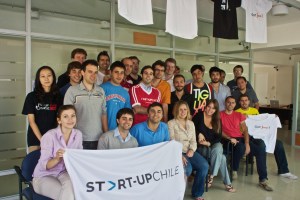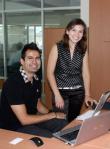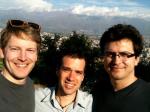 Regions all over the world have spent millions—sometimes billions—of dollars trying to create their own Silicon Valley. They drank the same Kool-Aid and used the same recipe: start with a research university; build a fancy tech park next to it; give tax breaks to chosen companies to locate in the park; attract venture capital by offering matching investments; and watch the magic happen.
Regions all over the world have spent millions—sometimes billions—of dollars trying to create their own Silicon Valley. They drank the same Kool-Aid and used the same recipe: start with a research university; build a fancy tech park next to it; give tax breaks to chosen companies to locate in the park; attract venture capital by offering matching investments; and watch the magic happen.
Unfortunately, the magic never happened, anywhere.
All government-sponsored (top-down) tech-cluster efforts—everywhere in the world—either have failed or are on life support (though some pretend they are not). That’s because they all used the wrong ingredients. It isn’t real estate, universities, or VCs that make innovation happen; it is entrepreneurs. To create a tech center like Silicon Valley, you need to first attract smart entrepreneurs from all over the world. Then you have to create entrepreneurial networks; instill a spirit of risk-taking and openness; and build mentoring systems. You also need to provide seed financing to startups. The money is easy; everything else requires a change in culture that usually takes decades.
But Chile is trying a radical new experiment that I helped conceive, to short-circuit this process. It is importing entrepreneurs from all over the world, by offering them $40,000 to bootstrap in Chile. They get a visa; free office space; assistance with networking, mentoring, fundraising, and connecting to potential customers and partners. All the entrepreneurs have to do, in return, is commit to working hard and live in one of the most beautiful places on this planet.
The program, called Start-Up Chile, is still in the pilot stage. Chile has selected 25 teams to receive grants. Seventeen of these teams have already moved to Chile’s capital city, Santiago. The program will be officially launched on January 13, 2011. It will then be opened to the next batch of 100 startups. Chile expects to “import” around 1000 startup teams over the next three years. The program is headed by Nicolas Shea, who reports to Chile’s Minister of Economy, Juan Andrés Fontaine.
To review the progress of Start-Up Chile, I travelled to Santiago this week. I came back convinced that Chile has a chance to become the first region in the world that will build a tech center out of nothing at all. And it will achieve this feat for a much smaller investment than other regions have made in efforts that failed.
All of the teams that I met raved about the opportunities they had gained by being in Chile. They told me they have gained valuable time to perfect their technologies before having to raise capital from Angels or VCs; that they’d found Santiago to be a really cheap place to live; and that they benefit by being able to network with each other, are appreciative of the support that the Chilean government is providing by connecting them to local businesses and investors, and enjoy the high quality of life and wonderful scenery and climate. They also find the natives to be very friendly and eager to learn from them.
I thought it best to let these entrepreneurs tell you their stories, themselves. So I recorded a video and had them collectively edit it. I must warn Chilean men not to watch this. They won’t like what Karina Aguirre (a Chilean who recently joined a Start-Up Chile team) has to say (or not to say) about them.
These are some of the companies featured in the video:
 Aeterna Sol produces modular, cybernetic, and dual-axis tracking systems for solar panels. These improve efficiency by 30%, cut installation costs by 50%, reduce installation time by a factor of ten, and require half of the land of other dual-axis tracking technologies.
Aeterna Sol produces modular, cybernetic, and dual-axis tracking systems for solar panels. These improve efficiency by 30%, cut installation costs by 50%, reduce installation time by a factor of ten, and require half of the land of other dual-axis tracking technologies.
 Entrustet allows you to make a list of your digital assets (online accounts and computer files) and decide which accounts should be transferred to heirs and which should be deleted when you die. Entrustet also notifies partner websites when one of its users dies.
Entrustet allows you to make a list of your digital assets (online accounts and computer files) and decide which accounts should be transferred to heirs and which should be deleted when you die. Entrustet also notifies partner websites when one of its users dies.
 H2020 taps the power of collective and artificial intelligence to find new solutions to global water problems. Think internet-of-things meets crowdsourcing meets state-of-the-art analytics; add in a dash of social entrepreneurism and a team undaunted by the impossible.
H2020 taps the power of collective and artificial intelligence to find new solutions to global water problems. Think internet-of-things meets crowdsourcing meets state-of-the-art analytics; add in a dash of social entrepreneurism and a team undaunted by the impossible.
 CruiseWise is a travel company that is bringing cruise-booking on line. It provides a better user experience than existing cruise exploration and booking options by simplifying a complex product and bringing together information from a variety of sources.
CruiseWise is a travel company that is bringing cruise-booking on line. It provides a better user experience than existing cruise exploration and booking options by simplifying a complex product and bringing together information from a variety of sources.
 Piehole.ie is an online directory of voiceover talent. Its slightly irreverent site provides voiceover talent to advertising agencies world wide but is most popular in Dublin and London.
Piehole.ie is an online directory of voiceover talent. Its slightly irreverent site provides voiceover talent to advertising agencies world wide but is most popular in Dublin and London.
 Tripeezy aims to be the ultimate resource for planning independent trips and discovering local culture during your travels abroad.
Tripeezy aims to be the ultimate resource for planning independent trips and discovering local culture during your travels abroad.
Editor’s note: Guest writer Vivek Wadhwa is an entrepreneur turned academic. He is a Visiting Scholar at UC-Berkeley, Senior Research Associate at Harvard Law School and Director of Research at the Center for Entrepreneurship and Research Commercialization at Duke University. You can follow him on Twitter at @vwadhwa and find his research at www.wadhwa.com.